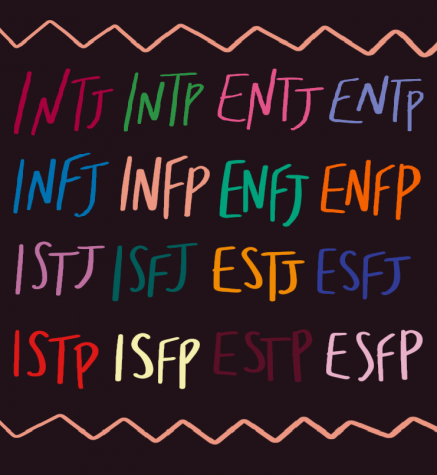Let your personality be your career adviser
Patrons of Brew Lab have a conversation over coffee on Feb. 18. Analyzing aspects of your personality can be an aid in choosing a career that’s right for you.
Feb 1, 2021
If someone tells you to think of a shy kid on a playground at recess, you might have a specific memory that comes to mind. It might be of your now best friend who took ages to get comfortable around you. It might be someone who didn’t have a lot of friends in class but is now a major leader in a well-known startup, or it might even be a memory of yourself not knowing how to approach the other kids. Chances are, whoever came to mind was, and still might be, an introvert. But as kids, we often don’t understand that different people have different personalities, and these unique differences in personality influence our individual behaviors. They pave the way for our future and impact every choice we make, including our career.
Our personalities affect more in our lives than we probably realize. Whether you’re an introvert or an extrovert, a thinker or a feeler, your personality type probably influences more important outcomes in your life than you think. That also means your personality might make you better suited for a certain career over another. The Myers-Briggs Type Indicator is a personality test backed by scientific theory that might offer insight into what career path you should pursue.
The Myers-Briggs Type Indicator is based on a theory that essentially describes how seemingly random variations in behavior can be attributed to the ways in which people perceive things and use their judgment. There are four categories that the Myers-Briggs personality test judges you on:
Extraversion vs. Introversion (E/I): Do you get energized by people around you or are you happier being alone?

Sensing vs. Intuition (S/N): Are you detail-oriented and focused on finding factual evidence to back claims or a big picture person more interested in the deeper meanings of things?
Get The Daily Illini in your inbox!
Thinking vs. Feeling (T/F): Are you a logical thinker or do you make decisions based on how you feel?
Judging vs. Perceiving (J/P): Do you prefer structure and consistency or are you spontaneous and tend to go with the flow?
These pillars of personality are said to determine the ways in which you behave, the relationships you form, the hobbies you take part in and a lot more. There are ultimately 16 different personality types that fall under four umbrella categories: Analysts, Diplomats, Sentinels and Explorers. Each of the 16 personality types is described to be suited for certain careers based on the strengths and weaknesses associated with each one. For example, extroverts may feel more comfortable pursuing a career that warrants a lot of interpersonal interactions, like teaching, whereas an introvert may prefer a more solo career, such as research.
So if you’re not sure what kind of career you want, maybe diving deeper into your personality can tell you more about what should make you happy long term. Or, if you’re already decided, understanding your personality better might help you assess your choice from a different perspective. Taking the test helped me to learn more about myself and gain more confidence in my chosen career path.
After finding out your personality type, the test will tell you what kinds of jobs you are best suited for. For anyone who might be on the fence about what to even consider, finding out what your Myers-Briggs personality type says about you might offer some options you can explore further and potentially flourish in. Something on their list of suggestions could turn out to be a job you love. At the very least, you get more insight into what kinds of behaviors your personality type is expected to engage in, and it’s all based on scientific theory. It’s not a Buzzfeed quiz telling you what house to buy or which Disney royalty you should date.
In other cases, circumstances might put you in a position where you take on a job you can’t seem to find the silver lining in. The Myers-Briggs Type Indicator can tell you important details about your personality type that can help you not only get through a tough job but also excel in it. There’s solace to find in knowing what your strengths and weaknesses are. If you’re clever, you can utilize what you learn about yourself to succeed even in a career you never saw yourself in.
Choosing a career path can feel daunting, and when the answer doesn’t come to you immediately, finding out more about yourself first can sometimes make decisions like that much clearer. The Myers-Briggs Type Indicator can’t tell you what to do, and it’s not some psychic that seems to know you or your future. Plus, sometimes aspects of our personalities change. But it can definitely tell you where you might thrive and offer some insight into what you might want to consider, completely based on your personality.
Shivali is a senior in AHS.






